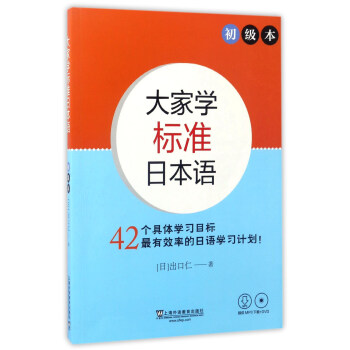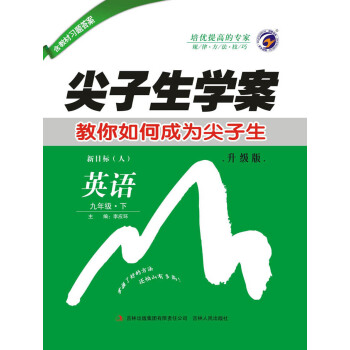![社会契约论(全英文原版) [The Social Contract]](https://pic.windowsfront.com/12191997/59c11d85N307be87c.jpg)

具体描述
产品特色
内容简介
西方政治思想史中用契约关系解释社会和国家起源的政治哲学理论。它通过把社会和国家看作人们之间订立契约的结果,来说明政治权wei、政治权利和政治义务的来源、范围和条件等问题。它探讨的是政治权利的原理,它的主旨是为人民民主主权的建立奠定理论基础。它的问世,是时代的需要,是人类社会向前进步的产物;它正确回答了历史进程提出的问题:法国命运的航船驶向何方。
古人有云:朝闻道,夕死可矣。人是社会动物,都有窥探社会组织架构、了解社会组织形态的好奇心和冲动。而现代社会更多脱胎于始于欧洲的资产阶级革命,要想做这方面的探究,和伟人直接对话是一条捷径。这就是这套原版的社科经典丛书的编辑初衷。不管你是学哲学的学生,还是从事社会科学研究的学者,不读几部经典原著,不在书架上摆上一套经典原著,应该是人生的一大憾事。
作者简介
卢梭(Jean-Jacques Rousseau)18世纪法国启蒙思想家、哲学家、教育家、文学家、音乐家,法国大革命的思想先驱,启蒙运动卓越的代表人物之一,被誉为“现代民主政体之父”。卢梭坚持社会契约论,主张建立资产阶级的“理性王国”;强调自由平等,反对压迫;提出“天赋人权”,反对专制、暴政。其代表作有:《论人类不平等的起源和基础》《社会契约论》《爱弥儿》《忏悔录》等。
目录
The Introduction 001
PART 1 OF MAN 004
PART 2 OF COMMON-WEALTH 149
A REVIEW, AND CONCLUSION 329
精彩书摘
Leviathan: of man and common-wealth
By Thomas Hobbes,1651
THE INTRODUCTION
Nature (the art whereby God hath made and governes the world) is by the art of man, as in many other things, so in this also imitated, that it can make an Artificial Animal. For seeing life is but a motion of Limbs, the begining whereof is in some principall part within; why may we not say, that all Automata (Engines that move themselves by springs and wheeles as doth a watch) have an artificiall life? For what is the Heart, but a Spring; and the Nerves, but so many Strings; and the Joynts, but so many Wheeles, giving motion to the whole Body, such as was intended by the Artificer? Art goes yet further, imitating that Rationall and most excellent worke of Nature, Man. For by Art is created that great LEVIATHAN called a COMMON-WEALTH, or STATE, (in latine CIVITAS) which is but an Artificiall Man; though of greater stature and strength than the Naturall, for whose protection and defence it was intended; and in which, the Soveraignty is an Artificiall Soul, as giving life and motion to the whole body; The Magistrates, and other Officers of Judicature and Execution, artificiall Joynts; Reward and Punishment (by which fastned to the seat of the Soveraignty, every joynt and member is moved to performe his duty) are the Nerves, that do the same in the Body Naturall; The Wealth and Riches of all the particular members, are the Strength; Salus Populi (the Peoples Safety) its Businesse; Counsellors, by whom all things needfull for it to know, are suggested unto it, are the Memory; Equity and Lawes, an artificiall Reason and Will; Concord, Health; Sedition, Sicknesse; and Civill War, Death. Lastly, the Pacts and Covenants, by which the parts of this Body Politique were at first made, set together, and united, resemble that Fiat, or the Let Us Make Man, pronounced by God in the Creation.
To describe the Nature of this Artificiall man, I will consider
First the Matter thereof, and the Artificer; both which is Man.
Secondly, How, and by what Covenants it is made; what are the Rights and just Power or Authority of a Soveraigne; and what it is that Preserveth and Dissolveth it.
Thirdly, what is a Christian Common-Wealth.
Lastly, what is the Kingdome of Darkness.
Concerning the first, there is a saying much usurped of late, That Wisedome is acquired, not by reading of Books, but of Men. Consequently whereunto, those persons, that for the most part can give no other proof of being wise, take great delight to shew what they think they have read in men, by uncharitable censures of one another behind their backs. But there is another saying not of late understood, by which they might learn truly to read one another, if they would take the pains; and that is, Nosce Teipsum, Read Thy Self: which was not meant, as it is now used, to countenance, either the barbarous state of men in power, towards their inferiors; or to encourage men of low degree, to a sawcie behaviour towards their betters; But to teach us, that for the similitude of the thoughts, and Passions of one man, to the thoughts, and Passions of another, whosoever looketh into himselfe, and considereth what he doth, when he does Think, Opine, Reason, Hope, Feare, &c;, and upon what grounds; he shall thereby read and know, what are the thoughts, and Passions of all other men, upon the like occasions. I say the similitude of Passions, which are the same in all men, Desire, Feare, Hope, &c; not the similitude or The Objects of the Passions, which are the things Desired, Feared, Hoped, &c;: for these the constitution individuall, and particular education do so vary, and they are so easie to be kept from our knowledge, that the characters of mans heart, blotted and confounded as they are, with dissembling, lying, counterfeiting, and erroneous doctrines, are legible onely to him that searcheth hearts. And though by mens actions wee do discover their designee sometimes; yet to do it without comparing them with our own, and distinguishing all circumstances, by which the case may come to be altered, is to decypher without a key, and be for the most part deceived, by too much trust, or by too much diffidence; as he that reads, is himselfe a good or evill man.
But let one man read another by his actions never so perfectly, it serves him onely with his acquaintance, which are but few. He that is to govern a whole Nation, must read in himselfe, not this, or that particular man; but Man-kind; which though it be hard to do, harder than to learn any Language, or Science; yet, when I shall have set down my own reading orderly, and perspicuously, the pains left another, will be onely to consider, if he also find not the same in himselfe. For this kind of Doctrine, admitteth no other Demonstration.
PART 1. OF MAN.
CHAPTER I. OF SENSE
Concerning the Thoughts of man, I will consider them first Singly, and afterwards in Trayne, or dependance upon one another. Singly, they are every one a Representation or Apparence, of some quality, or other Accident of a body without us; which is commonly called an Object. Which Object worketh on the Eyes, Eares, and other parts of mans body; and by diversity of working, produceth diversity of Apparences.
The Originall of them all, is that which we call Sense; (For there is no conception in a mans mind, which hath not at first, totally, or by parts, been begotten upon the organs of Sense.) The rest are derived from that originall.
To know the naturall cause of Sense, is not very necessary to the business now in hand; and I have els-where written of the same at large. Nevertheless, to fill each part of my present method, I will briefly deliver the same in this place.
The cause of Sense, is the Externall Body, or Object, which presseth the organ proper to each Sense, either immediatly, as in the Tast and Touch; or mediately, as in Seeing, Hearing, and Smelling: which pressure, by the mediation of Nerves, and other strings, and membranes of the body, continued inwards to the Brain, and Heart, causeth there a resistance, or counter-pressure, or endeavour of the heart, to deliver it self: which endeavour because Outward, seemeth to be some matter without. And this Seeming, or Fancy, is that which men call sense; and consisteth, as to the Eye, in a Light, or Colour Figured; To the Eare, in a Sound; To the Nostrill, in an Odour; To the Tongue and Palat, in a Savour; and to the rest of the body, in Heat, Cold, Hardnesse, Softnesse, and such other qualities, as we discern by Feeling. All which qualities called Sensible, are in the object that causeth them, but so many several motions of the matter, by which it presseth our organs diversly. Neither in us that are pressed, are they anything els, but divers motions; (for motion, produceth nothing but motion.) But their apparence to us is Fancy, the same waking, that dreaming. And as pressing, rubbing, or striking the Eye, makes us fancy a light; and pressing the Eare, produceth a dinne; so do the bodies also we see, or hear, produce the same by their strong, though unobserved action, For if those Colours, and Sounds, were in the Bodies, or Objects that cause them, they could not bee severed from them, as by glasses, and in Ecchoes by reflection, wee see they are; where we know the thing we see, is in one place; the apparence, in another. And though at some certain distance, the reall, and very object seem invested with the fancy it begets in us; Yet still the object is one thing, the image or fancy is another. So that Sense in all cases, is nothing els but originall fancy, caused (as I have said) by the pressure, that is, by the motion, of externall things upon our Eyes, Eares, and other organs thereunto ordained.
But the Philosophy-schooles, through all the Universities of Christendome, grounded upon certain Texts of Aristotle, teach another doctrine; and say, For the cause of Vision, that the thing seen, sendeth forth on every side a Visible Species(in English) a Visible Shew, Apparition, or Aspect, or a Being Seen; the receiving whereof into the Eye, is Seeing. And for the cause of Hearing, that the thing heard, sendeth forth an Audible Species, that is, an Audible Aspect, or Audible Being Seen; which entring at the Eare, maketh Hearing. Nay for the cause of Understanding also, they say the thing Understood sendeth forth Intelligible Species, that is, an Intelligible Being Seen; which comming into the Understanding, makes us Understand. I say not this, as disapproving the use of Universities: but because I am to speak hereafter of their office in a Common-wealth, I must let you see on all occasions by the way, what things would be amended in them; amongst which the frequency of insignificant Speech is one.
用户评价
罗素的这本著作,尽管篇幅不算宏大,却像一把手术刀,精准地剖开了现代政治哲学的诸多假象。阅读它,就像是跟随一位经验老到的辩论家,穿行于逻辑的迷宫之中。他并没有试图构建一个乌托邦式的完美社会模型,而是以一种近乎冷峻的理性,审视了权力、自由与道德之间的永恒张力。我尤其欣赏他那种不带感情色彩的分析,将社会规范和制度的形成,还原为一系列可被检验、可被质疑的初始假设。那种层层递进、环环相扣的论证方式,逼迫读者跳出日常的政治情感,从更基础的层面去思考“我们为什么服从”以及“我们服从的边界在哪里”。整本书充满了对清晰界限的执着,这一点在信息爆炸、界限日益模糊的当下,显得尤为珍贵。它不是一本读完就能让人拍案叫绝的畅销书,更像是一块磨刀石,让思考变得更加锋利。
评分如果说许多政治理论家是在描绘宏伟的蓝图,那么这位作者则更像是一位精密的工程师,专注于分析承重结构中的应力点。他的语言风格是如此克制,几乎不使用任何煽情的词汇,然而正是这种不动声色的严谨,构建起了一种无可辩驳的说服力。我发现自己不得不放慢速度,反复咀嚼那些定义和前提,因为任何一个微小的疏忽都可能导致整个论证链条的断裂。这种阅读体验是高度智力化的,它要求的不只是理解,更是参与到作者构建的逻辑迷宫中去。对我而言,它更像是一套关于如何进行严格思考的范本,教会我如何剥离修饰,直达核心的假设。那些关于个体与整体关系的探讨,至今仍在我脑海中回响,提醒我警惕任何试图将个体意志完全吞噬的集体叙事。
评分这本书给我带来了一种奇特的“清醒感”,仿佛作者是一位行走在历史长河中的冷眼旁观者,记录着人类在群体生活中所犯下的结构性错误。它不是在歌颂进步,而是在冷静地揭示那些被历史惯性所掩盖的内在矛盾。读到某些段落时,我甚至感觉自己被一种强大的智力结构所笼罩,那些看似天经地义的社会约定,在作者的笔下,瞬间变得脆弱不堪。这种震撼,不在于观点的颠覆性,而在于其论证的彻底性。它迫使你审视自己接受的那些“常识”,并问自己:这些常识的根基究竟在哪里?那种对“自然状态”的不断回溯和重估,让人产生一种对当下现实的疏离感,这是一种健康的距离,也是一种必要的批判姿态。对于任何对“秩序”本身抱有深刻怀疑的人来说,这本书都是一次难得的精神洗礼。
评分这本书最令人着迷之处,在于它成功地将抽象的哲学思辨,锚定在了人类最基本的生存困境上。它没有沉溺于对理想国的美好想象,而是聚焦于“我们如何才能相对不那么痛苦地生活在一起”这一永恒的难题。作者对权力本质的洞察,犀利得近乎残酷,他揭示了维护秩序所需的代价,以及这种代价是如何通过一套精心设计的仪式和话语体系被合理化的。我喜欢这种揭秘的过程,就像拆解一台复杂的机器,看清每一个齿轮是如何咬合,又是如何相互制约的。读完后,我对新闻里那些高谈阔论的政治家们少了一份盲目的崇拜,多了一份审慎的怀疑。这套理论框架,即便放到今天来看,依然是剖析当下社会纷争的有力工具,因为它直指人性的幽暗与社会的结构性脆弱。
评分我的感受是,这本书提供了一种“反驯化”的思维工具。在充斥着简单答案和快速结论的时代,它像一股清流,倡导一种对既有观念进行持续“去神圣化”的努力。作者的笔触极其精准,很少有模棱两可之处,这使得读者必须作出清晰的选择,要么接受其推论,要么从逻辑上找到反驳的支点。这并非一本轻松的读物,它需要读者投入时间去梳理那些看似枯燥的逻辑推导,但一旦跨过最初的门槛,收获的是对社会建构过程的深刻理解。它教会我,任何所谓的“自然秩序”都不过是历史偶然性与权力博弈的产物。这种洞悉事物本质的能力,远比记住任何具体的政治口号要宝贵得多。
评分给力,书都很不错,物流很快,现在都比较喜欢在京东上买书
评分给力,书都很不错,物流很快,现在都比较喜欢在京东上买书
评分传而不习,不成。还得给脑子找个事干,练练它。
评分挺好的,纸质不错。印刷清晰。物流很快
评分京东配送非常快速
评分558755662445633225655
评分凑单的 不过也算是一本经典著作
评分558755662445633225655
评分排版不错
相关图书
本站所有内容均为互联网搜索引擎提供的公开搜索信息,本站不存储任何数据与内容,任何内容与数据均与本站无关,如有需要请联系相关搜索引擎包括但不限于百度,google,bing,sogou 等
© 2026 book.coffeedeals.club All Rights Reserved. 静流书站 版权所有

![政府论(全英文原版) [The Second Treatise of Government] pdf epub mobi 电子书 下载](https://pic.windowsfront.com/12192041/59c12061N48f6ef91.jpg)









![丽声唱学自然拼读 第一级至第四级套装(套装共8册 点读版 附CD光盘4张) [4-9岁] pdf epub mobi 电子书 下载](https://pic.windowsfront.com/12193969/59cdf4edN8815940d.jpg)








